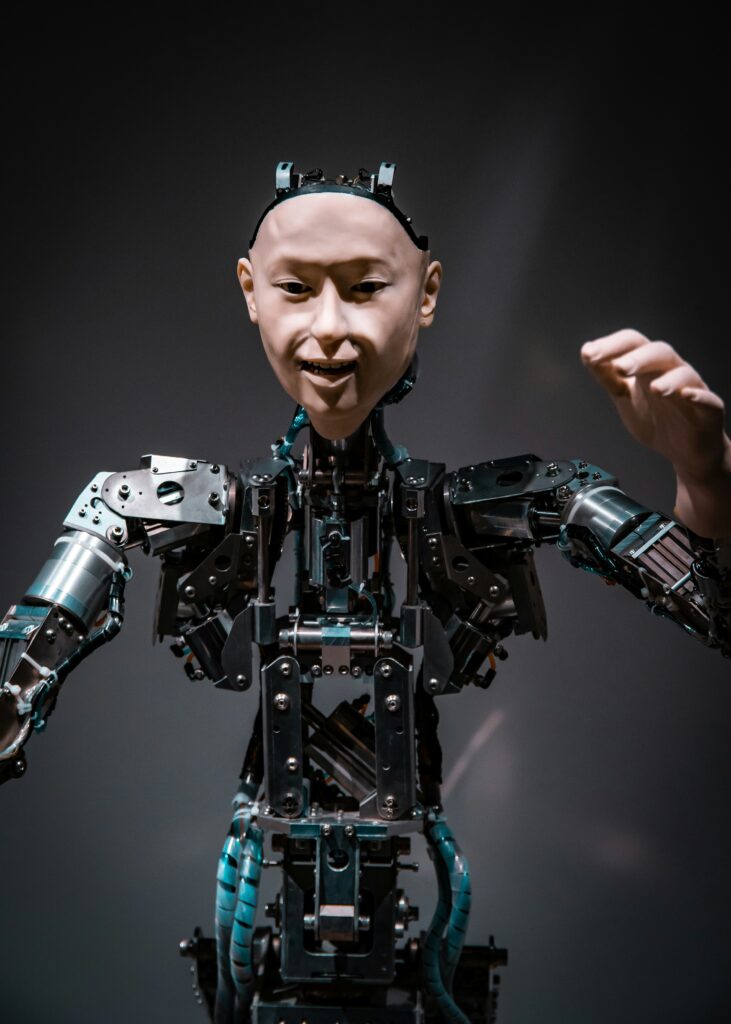In recent months, the tech world has witnessed an unprecedented surge in the development and release of **AI-powered gadgets**, redefining what we expect from our everyday devices. From smart home ecosystems that anticipate our needs to personal assistants capable of nuanced conversations, AI has moved beyond mere automation to truly intelligent interaction. CES 2024, for instance, showcased a plethora of innovations, including refrigerators with advanced food recognition AI, smartwatches that track complex health metrics with predictive analytics, and even pet feeders that learn your pet’s eating habits – all powered by sophisticated artificial intelligence algorithms.
This integration isn’t just about adding a ‘smart’ label; it’s about fundamentally enhancing user experience and efficiency. Consider the latest generation of smartphones, where our deep dive into the future of AI highlights how on-device AI handles everything from advanced computational photography and real-time language translation to highly personalized user interfaces. These devices are learning from our habits, optimizing performance, and offering proactive solutions before we even realize we need them. This shift marks a pivotal moment, moving from reactive technology to truly predictive and adaptive systems.
The Growing Market: Data & Insights into AI’s Dominance
The impact of AI on the consumer electronics market is not merely anecdotal; it’s supported by robust data. A recent Gartner report projects that by 2027, 25% of enterprises will adopt AI assistants for various tasks, indicating a broader trend towards AI integration across all sectors, including consumer-facing products. The global market for AI in consumer electronics is expected to reach over $100 billion by 2028, growing at a compound annual growth rate (CAGR) exceeding 25% annually. This growth is fueled by advancements in machine learning algorithms, cheaper processing power, and the increasing demand for intuitive, personalized experiences. Companies are heavily investing in R&D to embed more powerful AI capabilities directly into hardware, moving AI processing from the cloud to the edge, enabling faster, more secure, and more efficient device operation.
Furthermore, research from Deloitte indicates that consumers are increasingly prioritizing AI features when purchasing new gadgets, especially those that offer enhanced security, battery life optimization, and personalized content delivery. The seamless integration of AI into devices like noise-cancelling headphones that adapt to ambient sound in real-time or smart cameras that intelligently distinguish between pets and people demonstrates a tangible value proposition that resonates with users.
Transformative Impact on Daily Life and Industries
The proliferation of **AI-powered gadgets** is profoundly transforming daily life. In the home, smart assistants manage energy consumption, order groceries, and provide personalized entertainment recommendations. In healthcare, AI wearables monitor vital signs, detect anomalies, and even predict potential health issues, empowering individuals to take proactive steps towards wellness. For professionals, AI-integrated tools automate repetitive tasks, analyze complex data sets, and facilitate more efficient workflows, freeing up valuable time for creative and strategic thinking. This technological wave fosters an environment where devices are not just tools, but intelligent companions.
Beyond individual users, entire industries are being reshaped. The automotive sector, for example, is leveraging AI in autonomous driving systems and predictive maintenance. Retail is adopting AI for personalized shopping experiences and optimized inventory management. Education benefits from AI tutors that adapt to individual learning styles, while entertainment platforms use AI to curate content and create immersive experiences. The adaptability and learning capabilities of AI are unlocking new paradigms for service delivery and product innovation across the board.
The Road Ahead: Expert Predictions and Ethical Considerations
Looking to the future, experts predict an even deeper integration of AI into our devices, leading to a truly ambient intelligence where technology fades into the background, seamlessly supporting our lives. Dr. Kai-Fu Lee, a renowned AI expert, suggests that AI will evolve to possess empathy and emotional intelligence, leading to highly sophisticated personal companions that understand not just our commands, but our feelings. This future could see devices that anticipate our emotional states and offer relevant support, whether it’s playing calming music or suggesting a workout based on stress levels.
However, this rapid advancement also brings crucial ethical considerations to the forefront. Issues surrounding data privacy, algorithmic bias, and the potential for job displacement require careful navigation. Regulators, developers, and users must collaborate to establish frameworks that ensure AI development is responsible, transparent, and beneficial for all. The ultimate success of **AI-powered gadgets** will hinge not just on their technological prowess, but on our collective ability to manage their societal implications wisely. The next decade promises an exciting, yet challenging, evolution in our relationship with technology.

